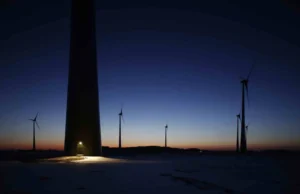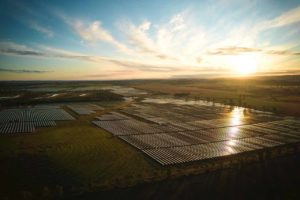
Prime minister Malcolm Turnbull has been delivered two home truths this week about his failure to act on climate change, and his refusal to tackle his party’s right-wing ideologues.
The first was a speech, more a thinly disguised lecture, from visiting France president Emmanuel Macron, who eviscerated Turnbull in front of a big audience at the Sydney Opera House on Tuesday night:
“I am fully aware of the political and economic debate surrounding this issue in your country, and I respect this,” Macron said.
“But I think that actual leaders are those that can respect those existing interests, but at the same time decide to participate to something broader, to something more strategic.”
“Actual leaders”? It seems Turnbull’s capitulation to the far right has not gone unnoticed on the international stage. And bravo to Macron for telling him so.
The second moment came the next day, at Kirribilli House, and again in the company of Macron, at the signing of a deal between Sanjeev Gupta, arguably one of the country’s leading industrialists, and the head of French renewable group Neoen.
The deal was for a solar farm to supply Gupta’s steel plant in Victoria, and so dramatically reduce its costs, and the message to Turnbull could not have been any clearer.
“The switch from fossil fuels to renewable energy is the revolution of this century, transforming our economics and our impact on the environment,” said Neoen president Xavier Barbaro.
“We believe renewable energy is a game-changer and (these) agreements reflect a shared commitment to deliver low-cost sustainable energy solutions to the market.”
Gupta intends to embrace renewables, to slash electricity costs not just in Victoria, but across his entire steel industry portfolio in Whyalla and NSW, and use this to make Australia great again in manufacturing and industry.
Yet here we are, with the leader who promised never to lead a political party that didn’t take climate change seriously … doing exactly that. And at the same time deliberately ignoring one of the greatest technology transitions in the world, just to placate a handful of vested coal interests.
There is now no doubt that Turnbull’s refusal to act on climate change, and his refusal to embrace Australia’s renewable energy riches, is driven by his Faustian bargain with the far right that both denies the science of climate change, and is sworn to defend coal.
According to the Institute of Public Affairs, a right wing think tank that rejects climate science, more than half of the Coalition’s parliamentarians are climate skeptics. The IPA should know, it has provided a few of those MPs from its own ranks.
Yet what were the major policy initiatives of the Turnbull government in the days before the Macron visit? Two programs that highlight its willingness to spend money to “adapt” to the impacts of the climate change that much of the government insists is not happening.
First was the $500 million to be spent on the Great Barrier Reef, an Australian and international treasure to be sure, with a fair chunk of this money aimed at developing new coral species that are more resistant to warmer waters.
Why do they need new species of coral to be able to cope with warmer waters? Climate change of course. What are we doing about climate change? Not much.
Ditto the announcement a day earlier from agriculture minister David Littleproud about an agreement with state ministers to help farmers adapt to climate change.
Why was this needed? Because the climate is changing. What are we doing about it? Not much.
As environmental groups, the Labor Party and The Greens have pointed out, there is little sense spending money on trying to adapt to climate change if you haven’t made much of an effort to tackle it first, and still refuse to do so. It becomes a never-ending pit.
Bill McKibben, the founder of 350.org, an environmental organisation that wants to hold the world to account on its Paris ambition to limit average global warming to 1.5°C, visited the reef last weekend as part of his latest tour of Australia.
“It was a weird feeling being up on the reef and reading news that the government was going to save the reef by not doing anything about the problem that the reef is actually facing. It was quite disorientating,” McKibben told RenewEconomy.
“It’s like coming across someone who has been mugged in a dark alley and you offer them a cholesterol test. It doesn’t address the problem.”
McKibben laments the fact that all around the world, nearly every leader – apart from Trump, who doesn’t care – wants to be perceived as doing something about the environmental problems we face.
“But they refuse to do the things that might actually help,” and this is despite the fact that right now – as Gupta and Neoen pointed out to Turnbull on Tuesday – it would actually be quite easy to achieve significant emissions reductions, given the falling cost of renewables and the emergence of battery storage.
“And that is infuriating,” McKibben says. “For years we listened to people saying (renewable energy) was too expensive, then it was too unreliable. Now it’s cheap, and Musk has built the biggest freaking battery in the world, and it’s working like a charm.
“They are running out of excuses, but the problem is they are still taking money from coal.”
McKibben has no doubt that the world will be running on the wind and the sun within 50 years, and for that matter neither do most energy institutions and forecasters.
The problem is that it needs to happen a lot quicker, and the small bump of momentum that occurred with the signing of the Paris climate treaty has been squashed by the election of Trump.
“One of the overlooked problems with Trump is that he sets the bar so low by being such a grotesque buffoon, and that makes it easier for others to look statesmanlike.”
As for Turnbull, McKibben is less forgiving.
“Turnbull knows everything there is not know about climate change, but doesn’t do anything about it. I don’t know if that if that makes him worse than Trump or better.”
It begs an interesting question. Has Malcolm Turnbull, he who crossed the floor to vote against his party’s bill to scrap the carbon price, become a de-facto climate denier?
Not a denier of the science, because it would seem he accepts that, but a denier of the need to act.
As Macron told him, it requires leadership to overcome dissent, and the “power of conviction”. But Turnbull has shown no inclination to argue his point.
Turnbull is a constant denier, too, of the march of renewable energy, and its undoubted benefits, which are now being embraced by many of Australia’s biggest corporates, as well as millions of households.
It was galling for many – and to the Victoria government – that Turnbull should be seeking to claim credit for a major solar farm that will be built as part of Victoria’s state-based target that Turnbull has often described as “waffle” and “left-wing ideology”.
Turnbull’s government is also a denier of the immense opportunity presented by the falling costs of renewables, and other actions, to be more ambitious on emissions, and to save money and reduce costs at the same time.
Analysis after analysis shows that his government’s weak emissions reduction targets for the electricity sector for 2030 will have already been met by 2020 – creating the prospect of yet another lost decade.
Energy minister Josh Frydenberg continues to label any higher targets as “reckless and extreme.” The government has no policy – nearly five years after it came to power – to address long-term emissions reductions in other sectors of the economy.
So how long will this climate denial last? For Turnbull, at least until the next election, because that is what his compact with the far right appears to demand.
At that poll, either he and his government will get turfed out, and be replaced by a Labor government that will hopefully deliver on its rhetoric, or Turnbull will sneak back in.
The question is whether he will still be cowed by the Far Right at that point – or will he take Macron’s advice on how to be a leader and show that power of conviction.











